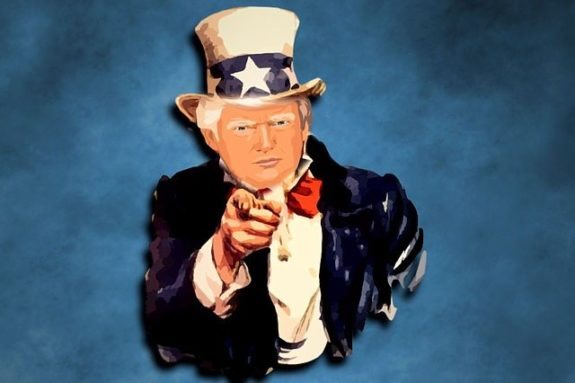
Who knows what Donald Trump pays in taxes? The effects of that question on the prospects for tax reform remain unknown. In an editorial in yesterday’s Los Angeles Times, the paper’s editorial board posed a set of queries:
Does he have business entanglements overseas that might affect his foreign policy decisions? Does he owe money to Russian lenders? How much does he give to charity? Does the nation’s convoluted tax system mean Trump pays taxes at a lower rate than middle-class Americans? In what years did he pay no taxes at all, and why? What other conflicts of interest exist that we can’t even guess at?
In yesterday’s New York Times, Alan Rappeport wrote that Trump’s refusal to release his tax returns is going to be a hurdle to any intentions he may have to reform the tax code.
On Monday, White House Press Secretary Sean Spicer reiterated that Trump’s returns would not be made public. “I think the president’s view on this has been very clear from the campaign, and the American people understood it when they elected him in November,” Spicer said. In response, In response, U.S. Sen. Chuck Schumer (D-NY), the Senate Minority Leader, said that continued refusal would make any plans for action on the tax code that much harder.
The president’s position is that he is uniquely qualified to take on the matter of tax reform; in his eyes, he understands America’s complex tax laws “better than anyone who has ever run for president.” However, the administration has yet to put forward a viable plan. Even economist Larry Kudlow, who helped Trump develop his campaign’s tax plan, says, “If they have no plan, they can’t negotiate…in that case, tax reform is dead.”
Rappeport writes,
Sign up for our free newsletters
Subscribe to NPQ's newsletters to have our top stories delivered directly to your inbox.
By signing up, you agree to our privacy policy and terms of use, and to receive messages from NPQ and our partners.
The president’s own vision for a new tax system is muddled at best. In the past few months, he has called for taxing companies that move operations abroad, waffled on the border tax and, last week, called for a “reciprocal” tax that would match the import taxes other countries impose on the United States.
Over 100,000 critics marched on the streets this weekend around the country demanding the president release his taxes. They say without them, Trump’s tax reform could be a plot to enrich himself and his progeny.
Perhaps the most consequential concern relates to a House Republican proposal to get rid of a rule that lets companies write off the interest they pay on loans—a move real estate developers and Mr. Trump vehemently oppose. Doing so would raise $1 trillion in revenue and reduce the appeal of one of Mr. Trump’s favorite business tools: debt.
Polls show that though a majority of Americans want Trump to release his taxes, the issue is a low priority for voters.
With little appetite for bipartisanship, many veterans of tax fights and lobbyists in Washington expect that Mr. Trump will ultimately embrace straight tax cuts, with some cleaning up of deductions, and call it a victory. Even that would be difficult, with a narrow Republican majority in the Senate and a widening budget deficit.
There is a lot at stake. More than a dozen Republican senators and representatives have now joined with Democrats and the (unpaid) rabble in the streets on Saturday, calling on Trump to release his returns. Even former Representative Joe Walsh of Illinois, an outspoken Trump fan, told MSNBC “this issue will come back and bite him on the butt.”—Ruth McCambridge and Cyndi Suarez













